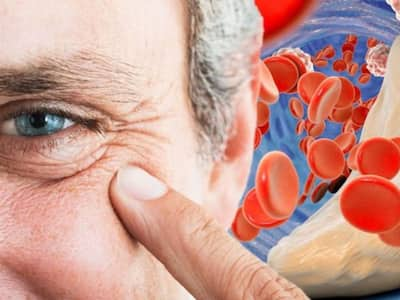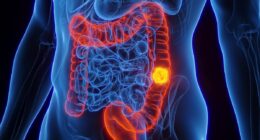
Ever thought what may happen inside your heart when both high blood pressure and high cholesterol levels strike you? Read on to know everything.
High blood pressure and high cholesterol come in the category of modifiable risk factors for the development of atherosclerotic cardiovascular disease(ASCVD). Either individually or as part of metabolic syndrome they increase the risk of development of Heart disease. In this article, we take a close look at how the heart gets affected when high cholesterol and hypertension strike the body together. To understand the conditions and their implications better, we have Dr Bharat Vijay Purohit, Sr. Consultant Interventional Cardiologist & Director of Cath Lab, Yashoda Hospitals Hyderabad, with us. Scroll down to know what the doctor has to say about the like between the two chronic conditions and how they affect the heart functioning.
High Blood Pressure And High Cholesterol: The Affect They Have On The Heart
Persistently Elevated BP leads to the hardening of arteries and causes the thickening of the heart muscle (Hypertrophy). This causes complications in the body from head to toe. It causes Brain stroke (both ischaemic and hemorrhagic), Dementia Retinopathy in the eye, Heart failure (predominantly with preserved ejection fraction), cardiomyopathy, Heart attack, irregular heartbeat (Atrial fibrillation), Aortic syndromes (e.g. Aneurysm or dissection of the aorta), Kidney failure, erectile dysfunction, Peripheral arterial disease etc. All these are potentially life-threatening.
Similarly high cholesterol also leads to deposition of the fatty substance in the walls of the arteries (plaque formation) leading to a reduction in blood supply to that part of the body causing ischaemic symptoms and sometimes when these plaques rupture they precipitate blood clot formation leading to stroke either heart or brain depending on the artery where clot forms. Various manifestation of these plaque formations depends on the organs involved and whether it leads to the formation of a narrowing or vessel(stenosis) or ballooning out of the vessel wall (Aneurysm formation).
Various diseases where plaque formation is central are Brain stroke, heart attack, Blindness, Aortic syndromes( Aortic aneurysm or Aortic stenosis or dissection or combination of these), Renal artery stenosis, Abdominal angina (Stenosis of blood supply to intestines) Erectile dysfunction, Claudication in leg or gangrene of feet or leg(due to stenosis of blood supply to leg arteries).
A simple measure of control of BP by lifestyle modification like salt reduction, low-fat dairy food intake, regular exercise, stop smoking, reduction in alcohol intake, Stress reducing measures, and avoiding causing high BP or high cholesterol will lead to a significant reduction in BP and cholesterol levels leading to a reduction in the incidence of these dreaded diseases.
High Cholesterol Symptoms
High cholesterol is a condition in which the LDL levels of the body cross 200 leading to some complicated health conditions. Cholesterol is basically a fatty waxy substance which is found in the blood. It helps in the making of new cells and the production of important hormones. However, high levels of this cholesterol in the blood can lead to severe problems in the body. Some of the signs that may show up when your cholesterol levels are way too high are:
READ RELATED: Health Tips: Did You Know That Drinking Water From Copper Vessel Improves Brain Health? Watch Video
- Nausea or vomiting
- Numbness in some parts of the body
- Slurred speech or unable to speak
- Extreme fatigue or tiredness
- Chest pain or angina
- Shortness of breath or breathing issues
- Numbness or coldness in extremities
- High blood pressure
Symptoms of High Blood Pressure
High blood pressure, also known as hypertension is a condition which comes no to mild symptoms, which is why sometimes it is also called the ‘silent killer’. However, in some cases, things can appear on your body (subtle signs of hypertension) when your BP is high. These signs include:
- Severe headaches
- Nosebleed
- Fatigue or confusion
- Vision problems or blurry vision
- Chest pain or angina
- Unable to breathe properly
- Irregular heartbeat
- Blood in the urine
Look out for these signs and symptoms as they can be a warning call of something serious about to happen inside your body.
Total Wellness is now just a click away.
Follow us on
Don’t Miss Out on the Latest Updates.
Subscribe to Our Newsletter Today!
window.addEventListener(‘load’, (event) => {
$(‘#commentbtn’).on(“click”,function(){
(function(d, s, id) { var js, fjs = d.getElementsByTagName(s)[0]; if (d.getElementById(id)) return; js = d.createElement(s); js.id = id; js.src = “//connect.facebook.net/en_US/sdk.js#xfbml=1&version=v2.3”; fjs.parentNode.insertBefore(js, fjs);}(document, ‘script’, ‘facebook-jssdk’));
$(“.cmntbox”).toggle();
});
});








